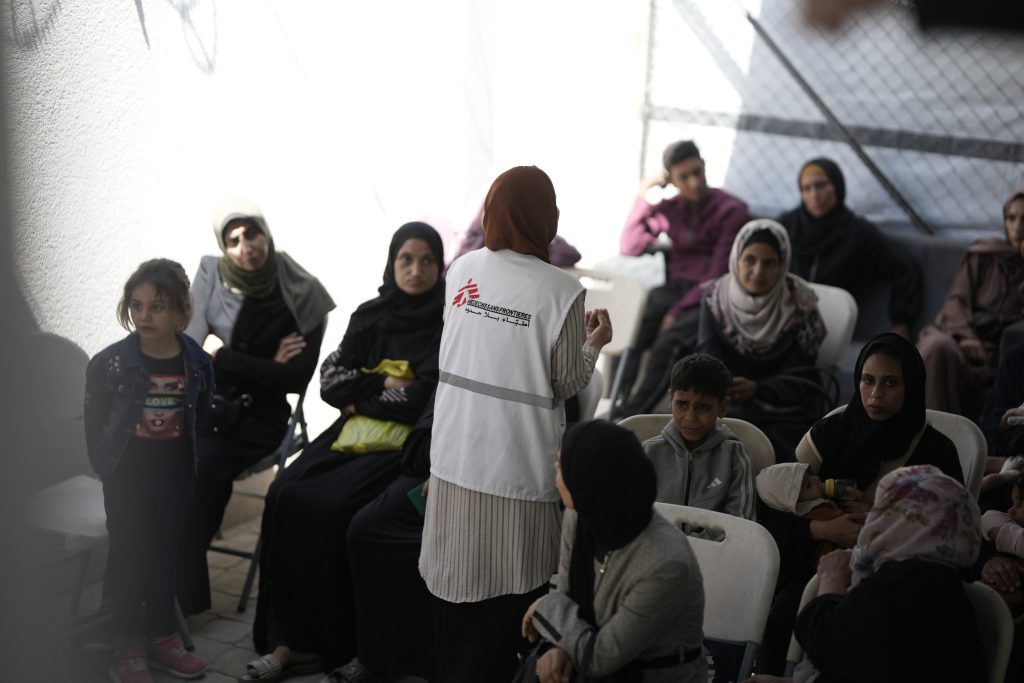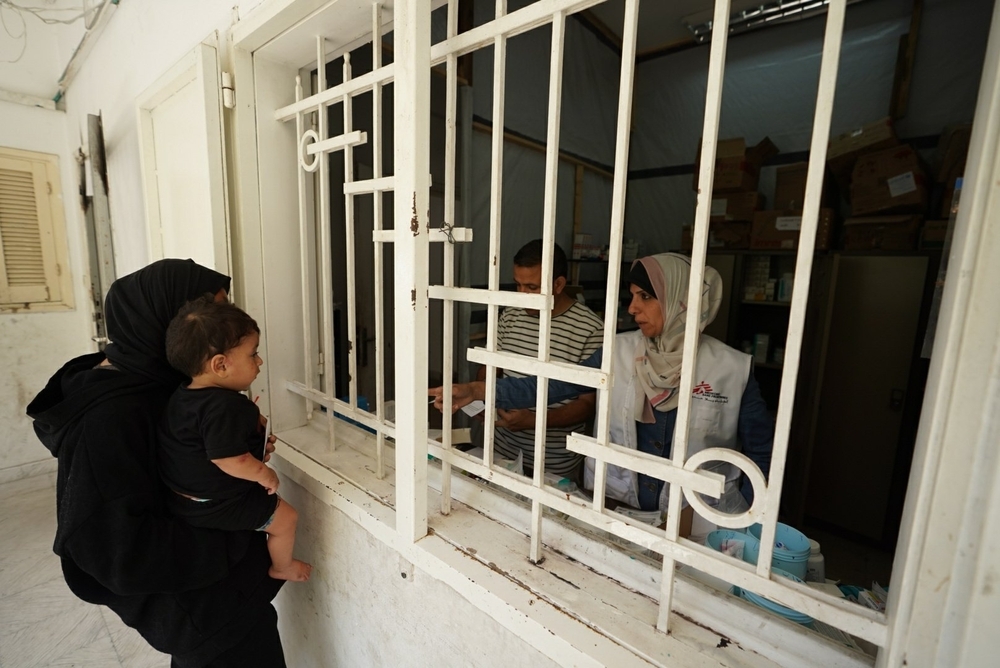Médecins Sans Frontières (MSF) teams are witnessing a sharp and unprecedented rise in acute malnutrition among people in Gaza, Palestine. In Al-Mawasi clinic, in southern Gaza, and in the MSF Gaza City clinic in the north, we are seeing the highest number of malnutrition cases ever recorded by our teams in the Gaza Strip. A sustained flow of food and medical supplies must be urgently allowed into the Strip.
More than 700 pregnant and breastfeeding women, and nearly 500 children with severe and moderate malnutrition are currently enrolled in ambulatory therapeutic feeding centres in both clinics. Patient enrolment in the MSF Gaza City clinic almost quadrupled in under two months, from 293 cases in May, up to 983 cases at the beginning of July. Of this July cohort, 326 are children between six and 23 months old.
The existence of malnutrition in Gaza is the result of deliberate, calculated choices by the Israeli authorities: restrict the entry of food to the bare minimum for survival, dictate and militarise the means of its distribution, all while having destroyed the majority of local food production capacity. People are risking their lives in the immediate term to obtain inadequate food rations, as a wider system collapse is ongoing – sewage contamination is occurring because infrastructure is destroyed, restrictions on fuel are limiting the production of clean water, appalling living conditions in overcrowded camps are impacting people’s health and compromising people’s immunity.

Before October 2023, Gaza was heavily reliant on the entry of goods and supplies from outside, with an average of 500 trucks entering the Strip every day. Since 2 March, not even 500 trucks have entered in total. With border crossings for aid frequently closed or operating under heavy limitations, and with local food production nearly impossible due to ongoing hostilities and destruction, markets are either empty, or the available food is unaffordable for most.
Inevitably, prices of food have skyrocketed across Gaza, placing even basic staples out of reach for most people. For example, one kilogramme of sugar costs on average US$ 766, while a kilogramme of potatoes or flour costs nearly $30, according to the World Food Programme. Due to this, many families are surviving on just one portion of food a day – often only rice, lentils, or pasta – with no access to bread, fresh vegetables, or enough protein.
Parents are also deliberately skipping meals to feed their children. Even malnourished women, who do receive therapeutic food, end up giving their own treatment supplements to their children.

The malnourished patients we are seeing are only the visible tip of a much larger crisis. At MSF clinics, injured patients beg for food instead of medicine – their wounds failing to heal because of protein deficiency. Our doctors are observing rapid weight loss, prolonged infections, and visible fatigue among patients and their caregivers.












